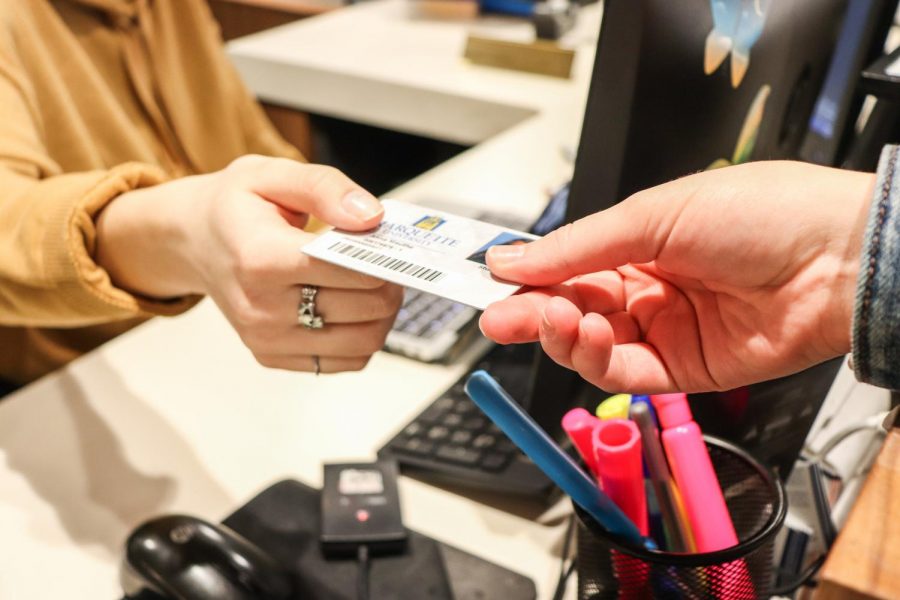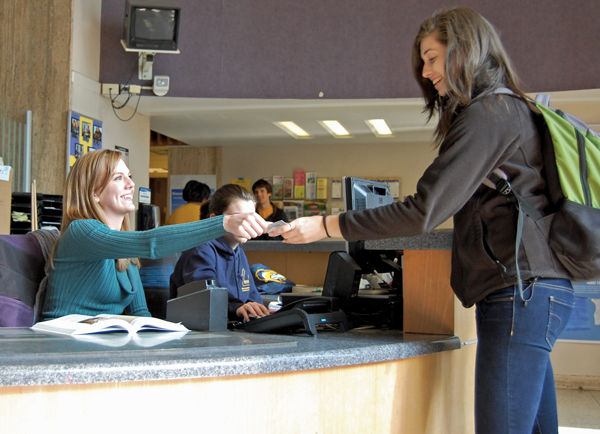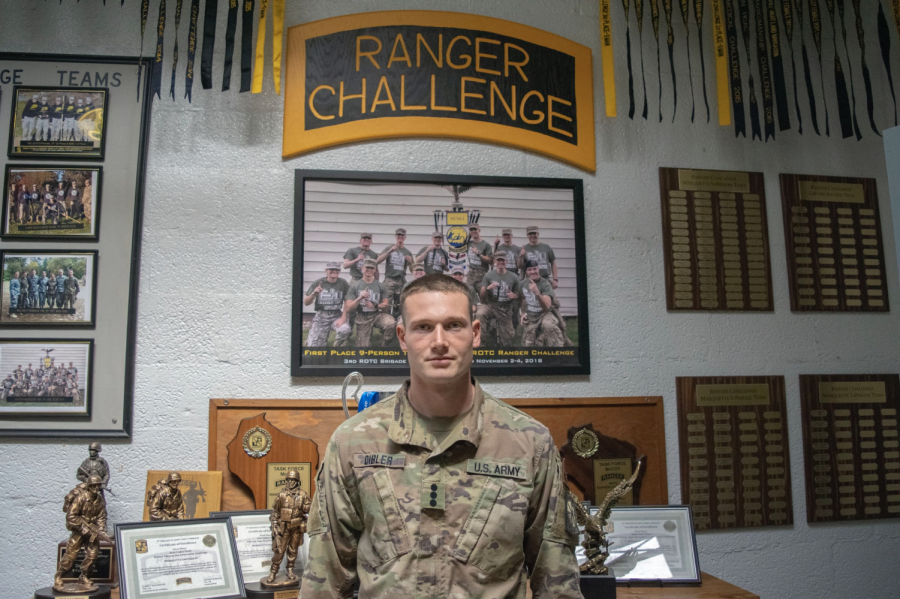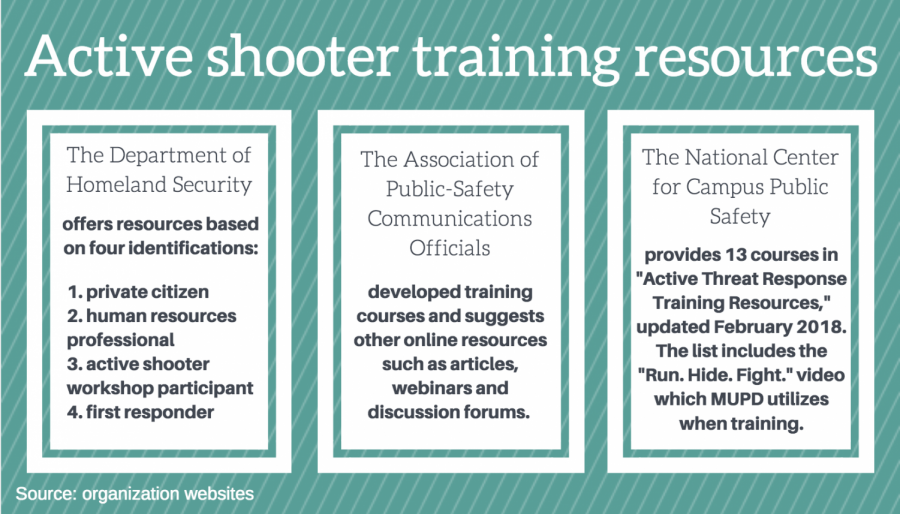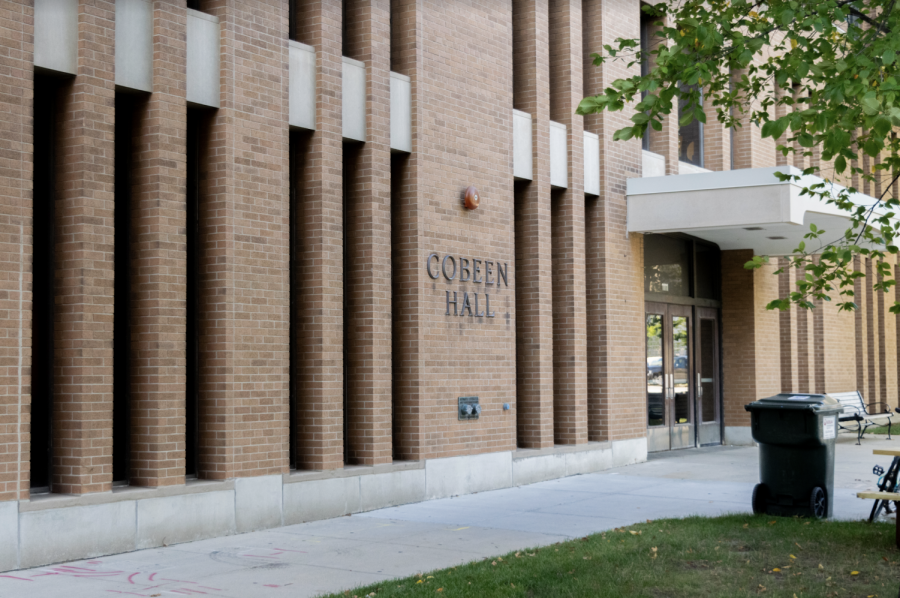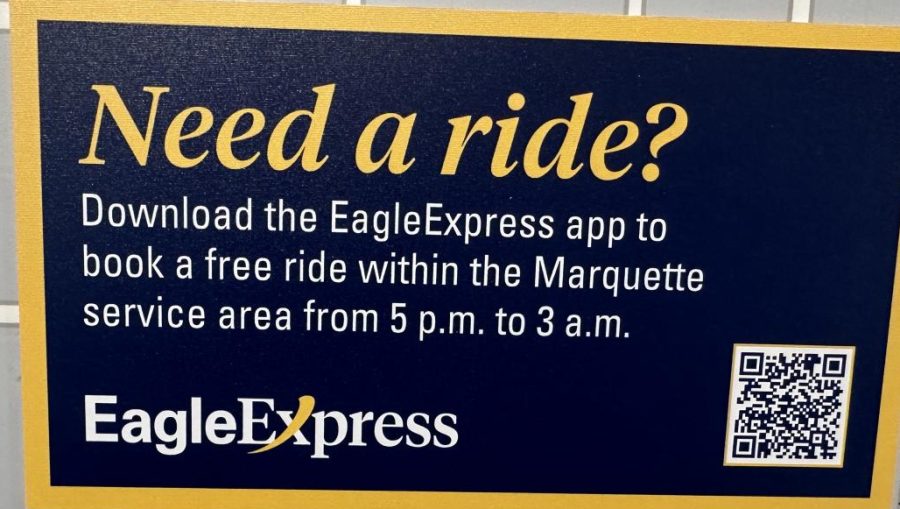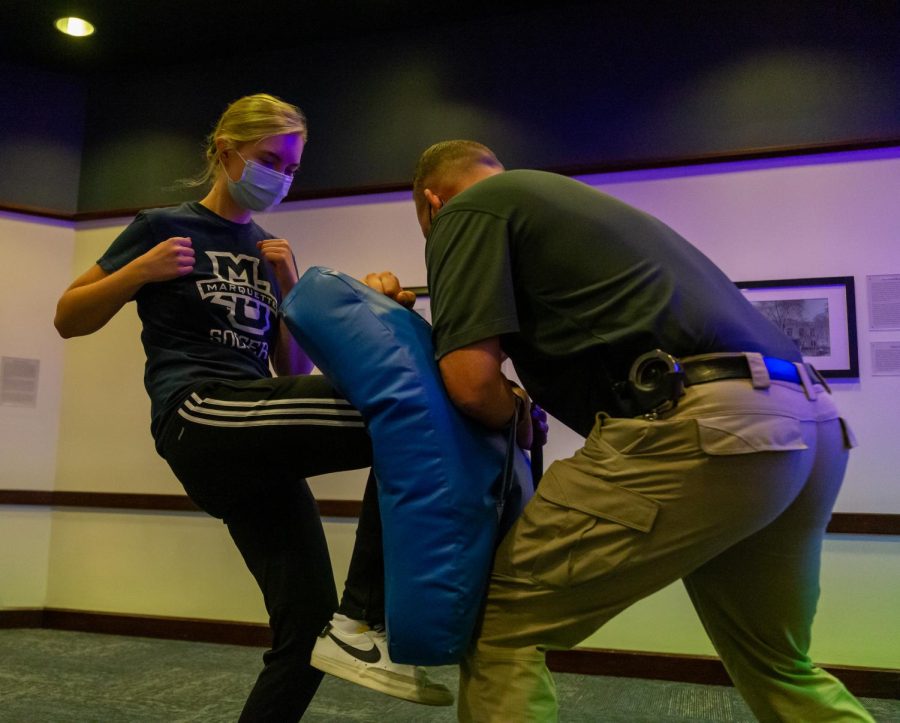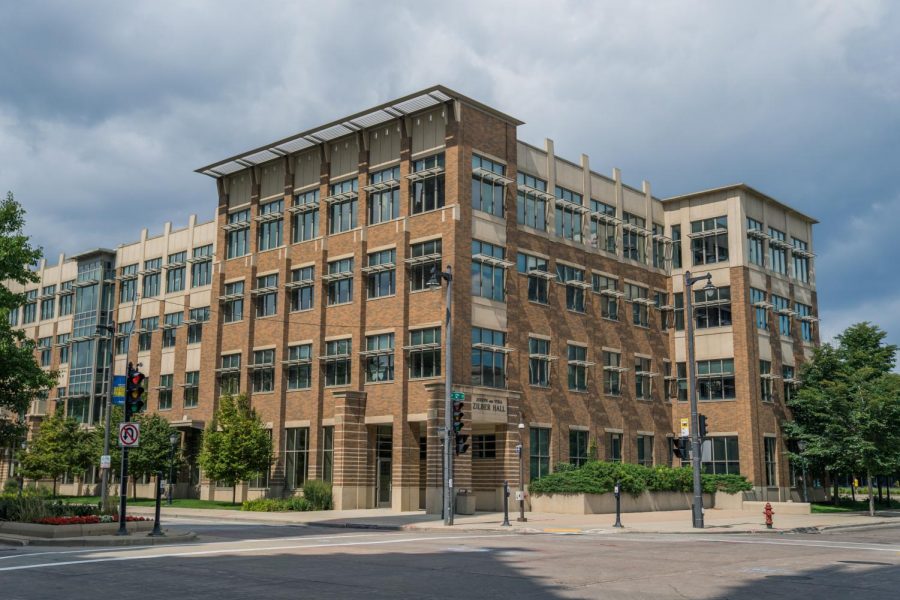Upon entering a residence hall, every student on campus must either swipe in or be checked in by a resident of that particular building. Desk receptionists are the gatekeepers of Marquette’s residence halls. They are there at the ready even when there is no immediate danger.
Though DRs have not always received active shooter training, Jeff Kranz, assistant chief of the Marquette University Police Department, said MUPD has been teaching active shooter training for the last couple of years.
Lindsey Goebel, a junior in the College of Health Sciences and a Straz Tower DR, said active shooter training is a part of DR summer training, which is mandatory. Active shooter training was previously not mandatory for DRs, according to previous reporting from the Marquette Wire.
Kranz said MUPD also offers other forms of safety training.
“We offer a number of different things: bystander intervention, personal safety, there are self defense classes, our active shooter preparedness class,” he said. “Plus, we’re willing to craft a class. If you have a group that’s like ‘Hey, here’s our concern, here’s a problem that we’re having, here’s a worry that we have,’ our crime prevention officer can sit down with that group.”
He also said that officers can put together personalized training for students who approach MUPD with specific concerns.
Kranz said this freedom is a benefit of Marquette having its own police department. He also said this kind of training is available to any student or student group and is not limited to DRs.
“We can really personalize what we’re doing instead of this cookie cutter presentation that kind of covers what (you) need but doesn’t answer all (your) questions,” he said. “We’re trying to personalize each time we go into a place and give training.”
He said that in the DR presentation, he tries to focus on preventative measures, though he said that MUPD’s approach to active shooter training has shifted over the years.
“A lot of our focus in the old shooter training was based on teaching the history of active shooters, and it was almost like we had to convince people that it could happen here,” he said. “We’ve gotten away from that now. We’re pretty clear that this is an ongoing threat in the world that we live in.”
He said that MUPD has eliminated the old focus on history and is now focusing on response, specifically on the warning signs that arise before someone engages in gun violence or other such behavior.
Michaela Schulist, a sophomore in the College of Arts & Sciences, has been a DR since the start of this academic year and participated in training last summer. She is currently a DR at Cobeen Hall.
Schulist said the training involved a lot of conversations about responding to various scenarios. She said DRs have a book with important contact information they can use for all types of scenarios, such as fires, active shooters or other incidents. She also said that in case of an emergency, each DR desk is equipped with an emergency button that directly contacts MUPD.
Goebel has been a DR at Straz Tower since September.
She said because she was a late hire, she received less formal training than students hired in time for the summer training. She was trained by Straz Tower facilities manager Molly Stark and another DR already on staff.
She said Stark went through the safety protocols in the guidebook DRs use.
Vivian Romano, a sophomore in the College of Communication and a DR in Straz Tower, said she was hired in January 2019. She was also a late hire and seconded Goebel’s response about the type of training she received.
Kranz said MUPD examines incidents on campus and in Milwaukee when thinking about appropriate training and response but that it also looks nationwide.
“It’s sad to say, but we have a lot of things we can analyze now and try and stop them before they happen,” he said. “I don’t want people to have to respond to an active shooter. I want them to stop the problem before it happens.”
This story was written by Shir Bloch. She can reached at shir.bloch@marquette.edu.

